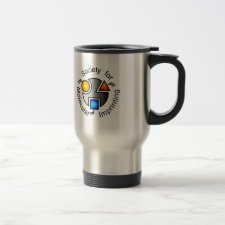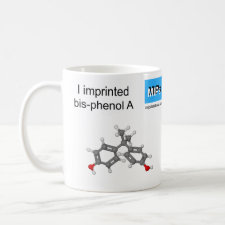
Authors: Sambe H, Hoshina K, Hosoya K, Haginaka J
Article Title: Simultaneous determination of bisphenol A and its halogenated derivatives in river water by combination of isotope imprinting and liquid chromatography-mass spectrometry.
Publication date: 2006
Journal: Journal of Chromatography A
Volume: 1134
Issue: (1-2)
Page numbers: 16-23.
DOI: 10.1016/j.chroma.2006.08.072
Alternative URL: http://www.sciencedirect.com/science/article/B6TG8-4KWTFFH-1/2/8c411e27d0068f88e51bbd2395c678e7
Abstract: A restricted access media-molecularly imprinted polymer (RAM-MIP) for [2H16]bisphenol A (BPA-d16) was prepared by a multi-step swelling and polymerization method using 4-vinylpyridine as a functional monomer and ethylene glycol dimethacrylate as a cross-linker, followed by hydrophilic surface modification using glycerol dimethacrylate and glycerol monomethacrylate as hydrophilic monomers. The obtained RAM-MIP showed excellent molecular recognition abilities for BPA and BPA-d6 as well as BPA-d16 used as the template molecule, and good ones for tetrachlorobisphenol A (Cl4-BPA) and tetrabromobisphenol A (Br4-BPA). Next, the RAM-MIP was utilized for selective on-line pretreatment and enrichment of BPA, Cl4-BPA and Br4-BPA in a river water sample, followed by their separation and determination by LC-MS. The calibration graphs of BPA, Cl4-BPA and Br4-BPA, constructed using BPA-d6 as an internal standard, showed good linearity in the range of 12.5-200 pg/mL (r > 0.999) with a 2-mL injection of a river water sample. The inter-day precision data for the assay of BPA, Cl4-BPA and Br4-BPA at 25 pg/mL were 1.08, 3.67 and 1.58%, respectively. Furthermore, this method was successfully applied for the simultaneous determination of BPA and its halogenated derivatives in river water
Template and target information: bisphenol A, BPA, tetrachlorobisphenol A, Cl4-BPA, tetrabromobisphenol A, Br4-BPA, BPA-d6, BPA-d16
Author keywords: Restricted access media, molecularly imprinted polymer, sample preparation, liquid chromatography-mass spectrometry, environmental analysis, bisphenol A, Halogenated bisphenol A



Join the Society for Molecular Imprinting

New items RSS feed
Sign-up for e-mail updates:
Choose between receiving an occasional newsletter or more frequent e-mail alerts.
Click here to go to the sign-up page.
Is your name elemental or peptidic? Enter your name and find out by clicking either of the buttons below!
Other products you may like:
 MIPdatabase
MIPdatabase









